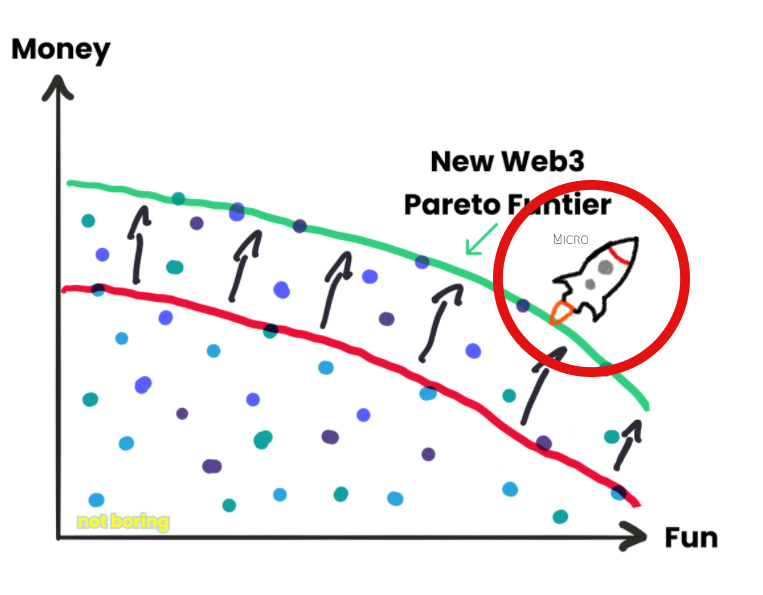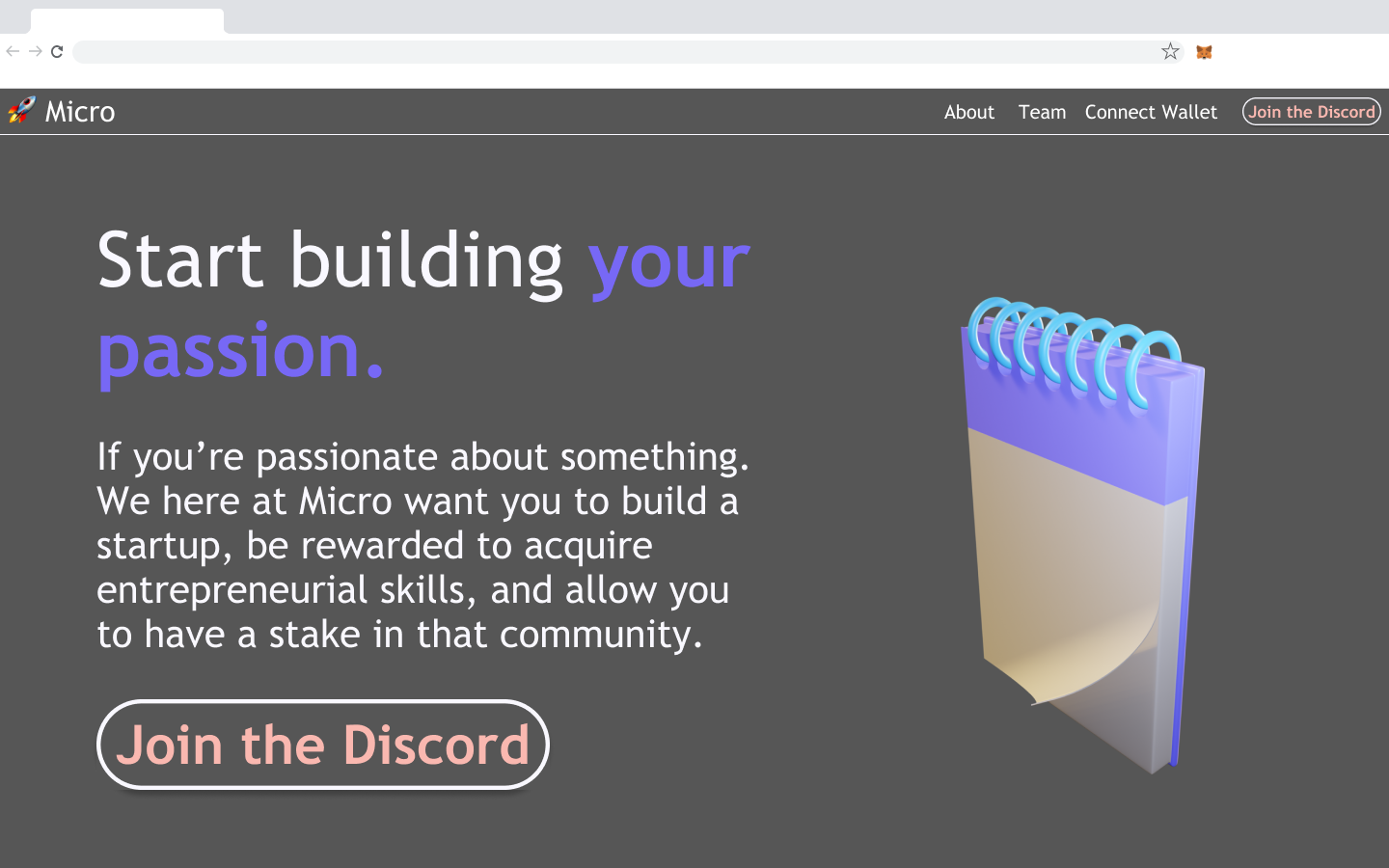I’ve always hated school, yet I’ve always loved to learn. Maybe it was the rigid approach to teaching or maybe it was the inability to hone my niche, I could never pinpoint it.
I spent my first year of college abroad in London, and it was an experience that changed my outlook on life. I was alone in a new, big, and definitely, an unknown city trying to find my people. In my search, I came across School 21 (a pioneering London-based organization seeking to innovate secondary school education). School 21 led me to the directors of Big Education, an education startup where I was able to secure an internship throughout the school year. Big Education was a tiny non-profit with only five people who were working to reform secondary education throughout the UK. I saw firsthand what a small team with aligned values, vision, and dedication to a goal could accomplish. Working at Big Education showed me that any individual can create intrinsic value for a team, and I decided that’s exactly what I wanted to do.
Since then, I have been either building my own companies or working on startups with others. I built a company called Induction Learning with a friend from high school, trying to empower learners to increase their standardized test scores and create an impact on how they learn and prepare. The product was fun to build with one of my good friends, but looking back, we made obvious mistakes since we didn’t test our product before building, tracking engagement, and solving our users’ problems. We were never able to iterate our initial vision to find product-market fit.
However, those experiences led me to work with other great entrepreneurs within the AWS scout community and Pogo for 6 months. The one thing that was always constant throughout all the ventures and programs I did was that every entrepreneur, student, or graduate, no matter the connection you had wanted to help others. The individuals in these communities would go above and beyond to help each other.
However, the larger communities themselves lacked engagement even for simple tasks. A couple of weeks ago, after interviewing users for Micro, my partner and I sent out minimum viable tests with gift card incentives to multiple communities like The Garage at Northwestern, AWS Scouts, and GenZ VCs and we got no more than 10 responses. There is a misalignment within these communities. At the crux of the problem, we determined that community members have no “skin in the game” even though the community is supposed to be theirs, forever.
Being an entrepreneur has not only given me invaluable skills, but also a community not constrained by location, language, or format. The world needs to encourage young people to simply build no matter the outcome. This article will show why the world needs Micro:
A community for student entrepreneurs to build, learn, and grow themselves as well as their business while being rewarded for simply engaging, creating, and contributing to the community.
As we explore Micro’s importance we will look through the evolving world and how we got to where we are today and why the world is ready for Micro.
- Entrepreneurship’s Importance in a New World
- Web3 Themes that will Define Micro from Current Communities
- What is Micro?
Entrepreneurship’s Importance in a New World
“Everything is changing faster and faster. Everything keeps getting crazier. It’s impossible to predict specifically what’s going to happen.” - Packy McCormick
The world is accelerating at exciting rates. We are living through a global pandemic, we have developed mRNA vaccines, we have seen digital art (NFTs) sell for millions, we have seen a group of strangers attempt to purchase the constitution, and we have seen supply chain issues every day. This is just a snippet, but it demonstrates that a year and a half ago most could not expect what was about to happen in the world. In Compounding Crazy by Packy McCormick, he says that to prepare for this world, a person should be open-minded, play online, read sci-fi to make the new road feel more familiar, and most importantly jump right in. The best way to prepare for the craziness is to build things. The best way to prepare for a crazy future is to build the one that you want.
Encouraging entrepreneurs, from a young age, to build what they want is incredibly important. For students (at least myself), it can lead to lifelong lessons. Navigating the world to come will require the skills to build, learn, and adapt on the fly. This will require obvious hard work, but hopefully, it can get more and more fun as the world evolves to new levels of crazy. McCormick talks about how, “[w]eb3 pushes the Pareto Funtier [relationship between fun and money] outwards by baking money into fun things and fun into money things (Pareto Funtier).” Micro will bake money, community, and ownership into entrepreneurship for students. Here is a sneak peek of where Micro will live on the Pareto Funtier:

Nadia Eghbal wonders if as the creator economy matures will it fulfill its promise to allow people to do what they want or just push out more content every day because they feel they have to (The Creator Economy). Micro will strive to help deter Eghbal’s worry, helping creators learn, make money, and have fun, living on the right-hand side of McCormick’s Pareto Funtier.
Web3 Themes that will Define Micro from Current Communities
Web3 is set to give new power to people on the internet. As someone who is relatively new to crypto (a couple of months), the reason I started down the path was that I loved seeing constant innovation. Now I see the power of ownership, open-source, and on-chain credentials. These are definitely not the only things Web3 enables, but what I am most interested in (check out my reading list if you want more here).
Web3 communities are powerful. They enable ownership, engagement, and education. Whether a DAO or just a group of people, the communities that I have been a part of or read about have been invaluable to my learning.
On-Chain Credentials:
Last weekend, on the mend from COVID, I built the first version of MicroDAO on buildspace. Take a look here.
I had a ton of fun building it and even got this NFT to show that I finished the course, (which is an amazing touch) that also represents the on-chain credentials aspect of Web3 that is going to become so important. Zach Davidson from Rabbit Hole, another transformative Web3 community that has helped me get onboarded into the space tweeted:
Rabbit Hole wants to make your wallet your on-chain resume, helping individuals show off the work they have done. Just like my NFT from Buildspace, these on-chain credentials will become critical parts of the future for anyone to get a job or show their skills. Instead of narrative telling, the world will have a clearer understanding of actual contributions. Another community that pushes forward on-chain credentials is GitCoin. Like, Kevin Owocki, the GitCoin founder, I believe that owning your online reputation is extremely exciting and believe that it should be for more than just working with Web3 protocols or development (Gitcoin Founder Kevin Owocki Explains the Strategy as Platform Passes $1 Million).
Community Engagement and Resources:
Community engagement and resources are other benefits of these new and ever-evolving communities. A prime example, Friends with Benefits (FWB) started as just as a gated Discord with a social token built on Collab.Land. Trevor McFedries, the co-founder of FWB, spoke about the DAOs inception and how it was, about making the creator economy collective and allowing them to produce and capture the value they are deserved (Friends With Benefits: A New Model for Social Tokens on Ethereum). Today, FWB’s token is around 75 dollars depending on when you read this and it costs between $5,000 and $10,000 to join, demonstrating the growth and value that the community has created from a financial perspective.
However, this is not because they are a crypto-obsessed bunch, but rather the opposite - as Alex Zhang puts it: crypto should be the least interesting thing about you (What’s Next for Friends With Benefits?). It is evident that crypto and Web3 technology is revolutionizing communities, empowering those who make up that community, and changing the way communities themselves move.
Ownership:
Ownership is essential, it is motivational, encouraging, and valuable. Not solely ownership of a token, but also the ownership that comes with community. For example, in the Buildspace community, nobody owns a token, but that doesn’t stop people from helping each other out. Additionally, the added ability to own a piece of the community like ENS by just using the protocol, which allows the user to have a say in the future of the community is extremely powerful. Communities with a driven purpose that gives ownership to their members will change how we think about the communities we are currently a part of.
What is Micro?
There need to be more communities as described, especially with the new resources available to build them. Micro, learning from FWB, Buildspace, Gitcoin, and RabbitHole, is going to be the home of student entrepreneurs. If you’re passionate about something, we here at Micro want you to build a startup, be rewarded to acquire entrepreneurial skills, and allow you to have a stake in that community. Micro will be there to support any entrepreneur to build, learn, and grow.

Micro will focus on my favorite aspects of Crypto communities I have experienced, on-chain credentials, community engagement, and ownership.
Students will work on their projects, building in public, while minting NFTs and acquiring DIDs as proof of work. They will submit proposals to the community for feedback, do A/B testing, build an MVT, and acquire skills. There is a lot to figure out, but by the end will be able to encourage students to go through the entrepreneurial process not because of the unlikely massive exit, but because they want to learn new skills and be rewarded for them throughout the process. We want to help this generation of entrepreneurs find their second startup with people they met in Micro.
Through our community, we want to open-source startup strategies just like Web3 development. We want skills and strategies like A/B testing to become a lego piece that you can plugin to your startup. Micro will make it easier to fail, and therefore learn. This allows iteration, growth, and an abundance of innovation among students.
This community plans to have social tokens for governance. The main reason we are writing this article before the MVP of our DAO comes out is to garner feedback. Tokens will be distributed to members who are contributing to the community, whether building their startup or helping each other out.
Micro is for students. We want to build the best founder community in the world. The world keeps getting crazier and crazier, crypto is a revolution, and entrepreneurs have the ability to mold the world into what they want it to be, making Micro integral to the next generation of builders.
This is just the beginning but will be building in public to create this community where people can make these NFTs, DIDs, share plans, and learn from each other hacking away to make their ventures great, but also learn to set themselves up for their next venture. If anybody has any questions, ideas, or feedback, DM MicroDao, me, Robbie Waxman on Twitter. We will be posting more about this and releasing a Discord soon to start building.
